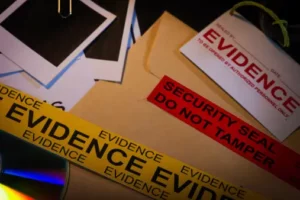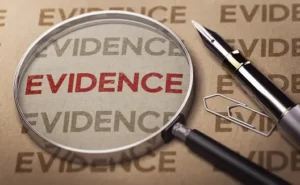Preservation of Evidence & Spoliation in Texas
March 21, 2023
One of the most important things lawyers must do with a new case is proactively working to preserve evidence.

That has created a new imperative for spoliation letters to preserve as much potential evidence as possible, as soon as possible.
Here’s a closer look at this evidentiary case law and how it can impact cases when allegations of evidence destruction arise.
What Are Spoliation Letters?
Spoliation is the improper destruction of evidence associated with a particular case. By extension, spoliation letters are documents that demand the preservation of evidence, formally requesting that certain parties conserve specific items that may be relevant to a case.
Also referred to as preservation notice letters, spoliation letters typically itemize the potential evidence for preservation, including as much as possible. They are also usually sent as soon as possible as a standard practice.
The purpose of spoliation letters is to put a party on notice that evidence is to be preserved for potential litigation.
Once a party has notice of a potential claim, that party has a duty to exercise reasonable care to preserve information relevant to that potential claim. A party has notice of a potential claim arising when the party actually anticipates litigation or a reasonable person in the party’s position would have anticipated litigation.
With a spoliation letter, the party is given notice of a potential claim, and it is unequivocal notice. Violating that spoliation letter can come with extreme consequences at trial.
What Happens When Spoliation Arises?

This can ensure that a party does not escape liability by destroying evidence, thereby hampering the plaintiff’s ability to prove a case.
At trial, courts may give a spoliation instruction to the jury, explaining that, if a party has control over a piece of evidence and fails to retain or produce it, the jury should presume that the evidence would have been unfavorable to that party that had control of the evidence.
How Jury Spoliation Instructions Work
There are two types of spoliation-presumption jury instructions, including:
- A rebuttable presumption: This presumes that the destroyed evidence was unfavorable to the spoliating party. Under these spoliation-presumption jury instructions, the spoliating party has the burden of disproving the presumed fact (that the evidence is unfavorable to the spoliating party).
- An adverse presumption: Also assuming the evidence would have been unfavorable to the spoliating party, these instructions do not shift any burden to the spoliating party. Instead, they simply require the non-spoliating party to prove their case.
A jury instruction regarding the spoliation of evidence is proper when a party has deliberately destroyed evidence or has failed to either produce relevant evidence or explain its nonproduction. This inquiry is a question of law for the judge to determine.
How Texas Courts Decide When to Issue Spoliation Instructions to Juries
In deciding whether a spoliation instruction is appropriate, the court should consider:
- Whether there was a duty to preserve evidence
- Whether the alleged spoliator either negligently or intentionally destroyed the evidence
- Whether the spoliation prejudiced the non-spoliator’s ability to present their case or defense
Before any failure to produce material evidence may be viewed as discovery abuse, the opposing party must establish that the nonproducing party had a duty to preserve the evidence in question. Additionally, it’s critical to demonstrate that the party who destroyed the evidence:
- Had notice of the potential claim
- Was also notified of the evidence’s potential relevance to that claim
Once a party has notice that they should preserve the evidence, failing to do so may result in the spoliation instruction.
Sanctions for Evidence Spoliation in Texas
In addition to issuing spoliation instructions to juries, trial courts can sanction the abusing party under the Texas Rules of Civil Procedure if the evidence was intentionally destroyed and the discovery process was abused.
In other words, if the plaintiff or defendant destroys evidence or fails to preserve relevant, requested evidence during the discovery process, the trial court may sanction the spoliating party. In the most egregious cases, death penalty sanctions are permitted.
Spoliation instructions can be a powerful tool during trial to punish bad actors who are willing to take risks and destroy evidence. An experienced attorney can help plaintiffs navigate spoliation letters and comes after to protect their rights and interests throughout a case.
